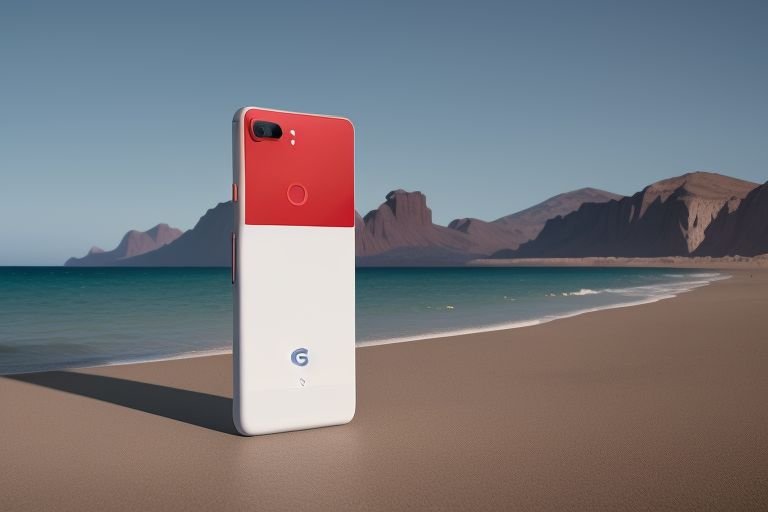
Google Unveils Pixel 9 Series with AI and Camera Improvements
Google has recently unveiled its latest generation of smartphones, the Pixel 9 and Pixel 9 Pro, during its annual hardware launch event and taking the AI mobile phone to the next level. The Pixel series is Google’s most significant attempt at a smartphone to date that takes full advantage of Google’s strengths in AI and machine learning to offer something that is impossible on any mobile device.
The heart of the Pixel 9 series is Tensor G4 chip designed by Google for this model and its performance is 2 times higher than that of the previous version in terms of AI computations. This new chip allows the on-device AI capabilities to be faster, more efficient, with better security than before. Google has been keen to state that many of these AI features can work offline, to allay privacy issues and make it usable in regions of poor connectivity.
They are the Pixel 9 series that is characterized by an improved Google Assistant that has large language model technology akin to ChatGPT. This upgrade makes conversations more natural, provide context awareness, and perform tasks in one or multiple applications.
For instance, users can for example request their assistant to go through the emails they received or sent lately, make appointments based on the contents of the emails and even type replies on their behalf all by using voice commands.
The camera system on the Pixel 9 series has gone through a complete overhaul with Google releasing its best computational photography features to date. The Pixel 9 Pro comes with a triple camera system, a new 50MP primary camera, a 48MP telephoto lens with 5x optical zoom, and a 12MP ultra-wide camera.
The outstanding feature of Google’s AI is image processing; for instance, “Semantic Segmentation” which is a process of analyzing the scene and separating the elements to be processed for the best outcome. The new “Night Sight Pro” mode takes the low-light photography to the next level and makes it almost on par with standalone cameras when it comes to shooting in less than ideal conditions.
Video capabilities have also received enhancements with the addition of the “Cinematic AI” mode. This feature enables focus, exposure and color grading to be adjusted in real time by the use of machine learning making the videos to look like they have been professionally filmed. The Pixel 9 series can now record 8K video at 30fps, which is at par with high-end mirrorless cameras.
In terms of design, Google has decided to go with a classy and more or less luxurious look for the Pixel 9 series. The devices embody the minimalist design with the matte glass on the back side and aluminum frame. There is a new Pixel with a slightly curved screen: Pixel 9 Pro, and both new models are brighter and show colors closer to the original.
Google has also improved on the sustainability aspect of the phones by incorporating recycled materials to build the phones and vowing to support the software of the phones for the long-term thus increasing the usable life of the devices.
Battery has been an area of concern for Google and both the Pixel 9 models have larger batteries and optimized power management. It says that it can last up to two days with moderate use of the phone through intelligent battery management that is powered by AI that adapts to the usage pattern of the user. Charging has also been optimised with the support of fast charging of 50W through wire and 30W wireless charging.
In terms of software, the Pixel 9 series will run on Android 15 out of the box and it comes with several new features and enhancements. The fresh version of the operating system pays a great deal of attention to the user’s privacy and security, offering new options for the control of applications’ permissions and usage of the data. Google has also developed what is called “AI Privacy Guard” which is an on-device machine learning that can instantly identify and stop privacy violations.
While 5G networks are still gradually being rolled out across the world, the Pixel 9 series is well prepared to leverage fast connection. Google has worked with most of the carriers around the world to make 5G connection perform the best and has added features that utilize this bandwidth including the “Instant Apps” that enable a user to run an application without downloading it.
This is really a statement that Google is making with the Pixel 9 series and the direction it wants the smartphone industry to take. The key strategies, which Google plans to achieve competitive advantage in the highly saturated smartphone market, are the further entrenchment of AI features, enhancing the capabilities of mobile photography, the protection of users’ privacy, and the consideration of environmental issues.
When these devices are released in the following weeks, it will be worthy to observe the reception from the consumer side for Google’s AI-first strategy and if it will be enough to compete with other giants in the industry.

